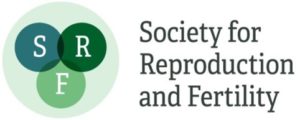By Dr Gbenga Eweoya, Senior Lecturer in Anatomical Sciences Department, University of Abuja, Nigeria.
Author Biography:
Dr Gbenga is presently a Senior Lecturer and the Ag.ead of the Anatomical Sciences Department at the University of Abuja, Nigeria. His interest in Sexual and Reproductive Health made him further his knowledge in this area and he has gone on to acquire certificates in Clinical HIV Management, Sexual & Reproductive Health and Gender-Based Violence. He also had training in Family Planning and Diagnostic Ultrasound. His area of specialization is Clinical Anatomy with an interest in Reproduction, with a research focus on Fertility. He is interested in reducing infertility problems in Nigeria which may be extended to other African countries.
Having good mentors is one of the greatest things that can happen during an individual’s academic journey. Mentors are usually people in your field whose work you value and who are willing to share what they know. They can be at any level of their professional development, often they are at a more senior stage of their career than the mentee, but they can also be peers.
How have you personally benefitted from mentoring?
My mentor is knowledgeable and experienced in my chosen area of specialization, both of which have assisted me in achieving my goals. He has also been there for me during times of personal hardship and, although this is not something that can be expected from all mentors, it is something that I am extremely grateful for. Today, I am more knowledgeable and committed to my area of specialization because of my mentor’s support.
Mentors can help to identify opportunities for your career advancement, networking and support you to develop any areas of weakness you may have. Personally, I find it much easier to network with specialists in my chosen area thanks to my mentor’s help, which has allowed me to develop myself further and to meet new mentors. I can confidently say that my mentor’s investment in me has paid off and has instilled the same attitude and outlook into me for my junior colleagues.
As well as this, having a good mentor helped me to identify what advice and resources my own mentees may find useful, to pass this knowledge forward again. I always guide my own mentees to identify opportunities for career advancement and encourage them to be resilient during difficult periods while developing themselves academically, just as my mentor did for me.
How did you go about finding a mentor?
I first decided my area of specialization. Next, I identified an expert in this field that was within my vicinity, as I personally preferred to meet with them in person. I was lucky to find an expert nearby who was very willing to disseminate their knowledge and to assist me in achieving my career goals. In my case, after identifying a potential mentor, I decided to send him an email introducing myself and briefly explaining what assistance I was hoping to gain from him. He agreed to my proposal and was willing to give me all the necessary support.
It is important to note that with today’s technology, you can look for mentors based anywhere across the globe as long as you’re both able to meet virtually – conferences can be a great place to first make these mentoring connections in person. Another easy way to find mentors is established mentoring schemes, where mentors sign up to be contacted by potential mentees. SRF have a free mentoring scheme available to all SRF members, find out more here: https://srf-reproduction.org/srf-mentoring-scheme/ . Your institution may also have similar mentoring schemes available.
What do you think are characteristics of a good mentor?
A good mentor must be willing to share their knowledge and experience with their mentees. They will be dedicated to the progress of their mentee and share in their successes. As well as sharing in the highs, a great mentor will also give you advice to get you through the lows. Having a mentor that maintains open communications with mentees is also a very useful attribute. In my own case I was lucky to find all these attributes in my mentor and I have used him as a role-model when assisting my own mentees.


